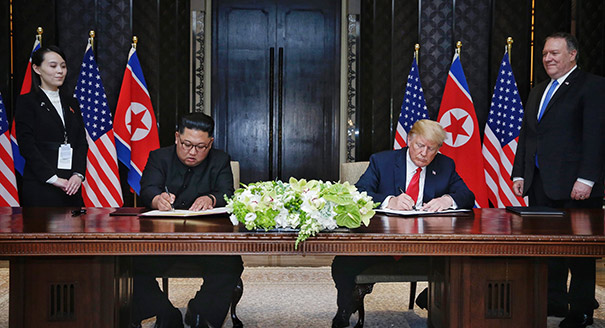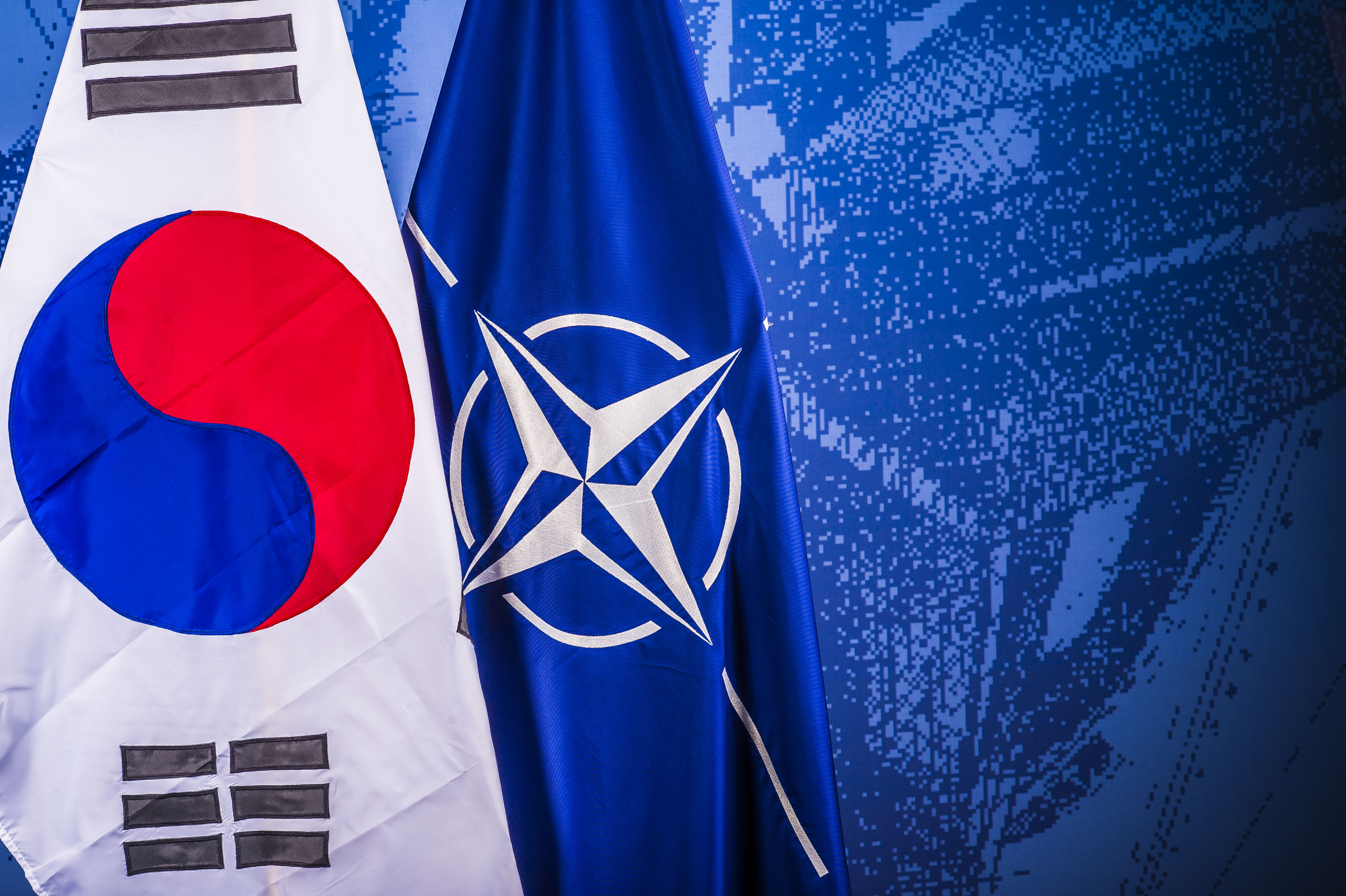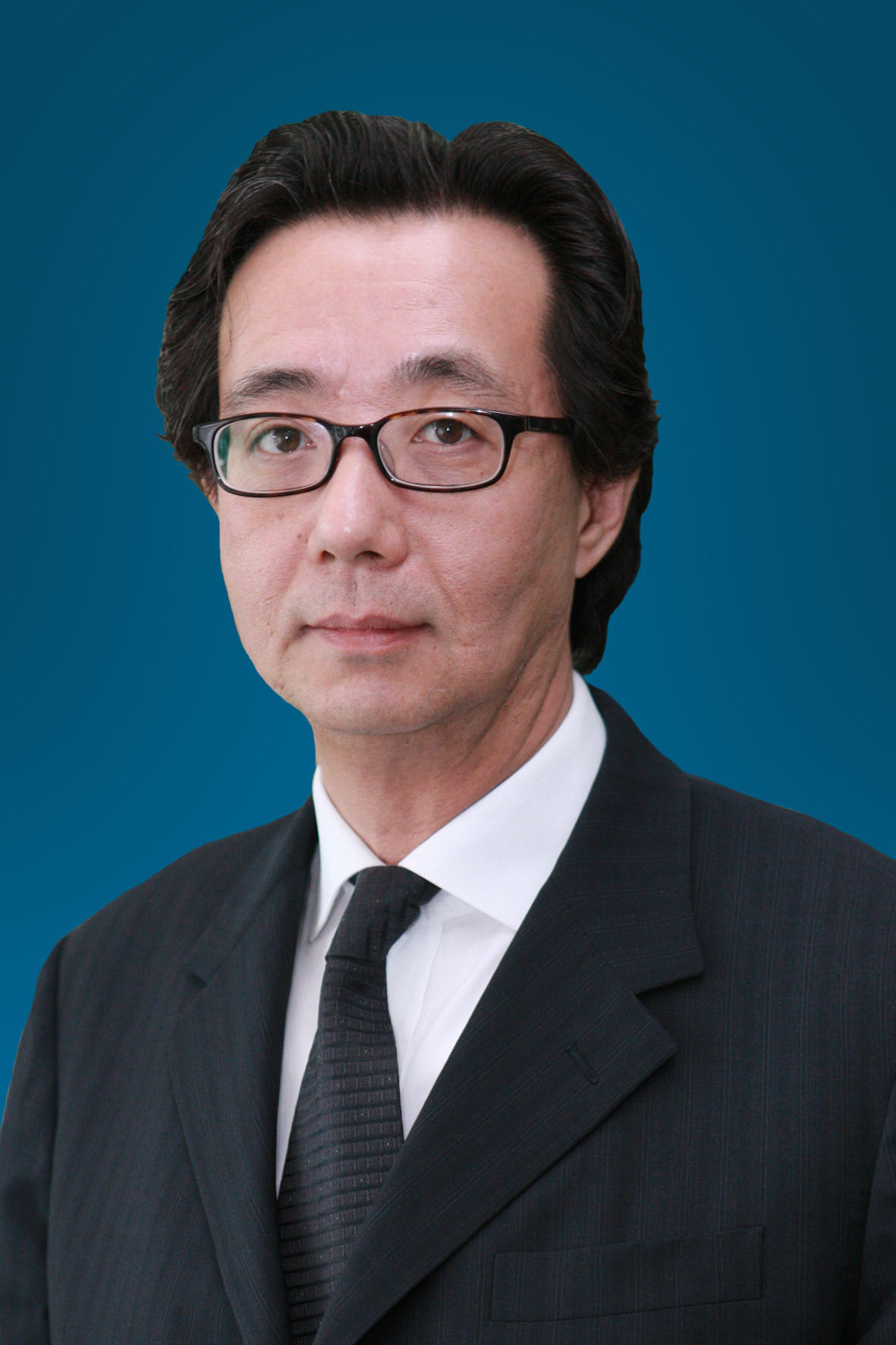Source: Politico
From the beginning of his presidency we have found most of Donald’s Trump foreign policy initiatives to be imprudent, unwise, unduly politicized and almost willfully counter to America’s national interests.
But even a broken clock is right twice a day. And while Trump’s lack of impulse control and his rush to the summit (and the history books) squandered valuable U.S. leverage with North Korean leader Kim Jong Un, a summit might have been the only way to change the dynamic with Pyongyang. Whether this high-risk gambit will work remains to be seen. But we believe that Trump—with all his bumbles and stumbles—was right to try for several reasons.
1. Nothing Was Working
Trump was right when he opined that U.S. diplomatic efforts over the past two decades to resolve the North Korean nuclear threat had all failed, and that he inherited a problem that was made much worse by these repeated failures to halt, cap and reverse North Korea’s development of ballistic missiles and nuclear weapons. As one Korea expert has noted, North Korea is the “land of lousy options.” And Americans should know because we tried almost all of them — from engagement and negotiations to sanctions, isolation, pressure and military saber-rattling to the so-called strategic patience of the Obama years, which largely amounted to the U.S. sticking its head in the sand. By the time Trump assumed office, North Korea was well on its way to acquiring the capability to hit the continental United States with ICBMs carrying nuclear warheads and had more than enough nuclear weapons to obliterate South Korea and Japan. Trump was right to put this issue at the top of the U.S. foreign policy agenda and to convert strategic patience into impatience.
The one approach Washington had not tried until the Singapore summit was to meet at the very top with the North Korean decider-in-chief to start clearing the air of the hostility and mutual suspicion that hung over the two countries and to begin building mutual trust as the basis for concluding meaningful agreements on denuclearization. Indeed, it was high time to start talking to North Korea and not just about North Korea. On this, Trump’s instincts were not entirely wrong. As one comprehensive study of the history of U.S. engagement with North Korea concluded, North Korea has behaved less provocatively over the past 25 years when the U.S. is negotiating with it in either a bilateral or multilateral format.
2. Talking Is a Lot Better Than Shooting
Only the interminably obtuse or irresponsible would conclude that the course Trump set with Kim this week is worse than the one he was on barely a year ago. Then it was fire and fury, locked and loaded, “Little Rocket Man” and a tsunami of ad hominem attacks against Kim that, even if contrived to demonstrate Trump’s toughness and unpredictability, could have triggered an incident leading to war. Kim was popping off missiles and threatening Guam and there was talk of unilateral military action. At this time last year, as sober a head as Secretary of Defense James Mattis was talking about war with North Korea dominating Cabinet discussions. As recently as February of this year there were reports that the national security adviser was even pushing the option of a “bloody nose” strike against North Korea.
Whether or not Trump’s summit gambit produces an actual agreement on denuclearization, it’s to be hoped that we’re in for a prolonged period of relative stability in U.S.-DPRK relations. There are likely to be no North Korean missile nor nuclear tests while this process unfolds and the rhetorical war should abate. The U.S. military exercises that put the North Koreans in high dudgeon are likely to be canceled during negotiations, as Trump promised—but they’re easy enough to restart if talks fall apart.
Most importantly, for the first time since Trump became president, there will be both the time and political space to test whether dialogue and negotiations can deal with the challenges in U.S.-North Korean relations. By any standard of logic and rationality, the course Trump has set is far preferable to military action or a status quo that would only increase Kim’s missile and nuclear capacity.
3. Engaging Kim Was Essential
Kim Jong Un is arguably the world’s last truly totalitarian leader—which is why dealing directly with him is critical. After all, the nuclear project is inextricably linked to decades of the Kim family’s dynastic aspirations; and if Trump wants to get Kim to constrain, or even eliminate, his nuclear arsenal and infrastructure (in our view magical thinking), there’s no alternative but going to the top—the only guy who has the authority and legitimacy to make decisions about any of this. It remains a counterfactual, but it’s hard to imagine that a “Sherpa” approach—months or maybe even a year or more of lower-level discussions before scaling the summit—would have worked. One of us spent a great many years pursuing Arab-Israeli peace. And the reality was that only leaders—most often in the heat and urgency of a summit—can be expected to make big decisions on (properly teed-up) core issues.
And with Kim, the challenges are greater. His opacity and unpredictability, the limited U.S. contact with him since he ascended to power in 2011, and a negotiating experience with North Korea filled with so much talk of cheating and betrayal that it crushed trust and confidence between the two sides—all of that argued for an initial meeting to create a measure of trust and confidence. So, though it was risky, Trump was not wrong to engage Kim. But he overdid it, especially with all the gushing and gauzy rhetoric about how much Kim is beloved by his people, and now has little to show in return.
4. There Was an Alternative
If Trump deserves high marks for trying to achieve a historic breakthrough with North Korea, he earns barely a passing grade for execution. His handling of the summit once again demonstrated that, his braggadocio notwithstanding, he really is a lousy negotiator. Although Kim was the demandeur for the summit, Trump signaled that he needed a successful summit more than Kim despite his empty threats of being willing to walk away.
Second, all his loose talk prior to the summit about withdrawing U.S. troops from South Korea, a longstanding North Korean demand, conveyed to Kim that he would not have to pay a price for this idea because at some point in the future Trump was prepared to act unilaterally to save money.
Third, by legitimizing Kim with the summit and dropping the phrase “maximum pressure,” he undercut the international sanctions campaign and paved the way for other countries—especially China—to drop their efforts at diplomatically isolating the North Korean regime.
Finally, by trying to marginalize China from the summit process and coordinating poorly with South Korea and Japan, especially on the decision to cancel U.S. military exercises, he created wedges that North Korea can easily exploit. In all these ways, Trump squandered sources of American leverage.
Kim, on the other hand, seems to have borrowed a page from Napoleon’s playbook, who famously observed, “never interfere with your enemy when he is making a mistake.” He played a weak hand smartly, while Trump played a strong hand weakly. The president gave him the gift of a summit without getting anything of commensurate value in return. He demanded nothing in return for his decision to cancel U.S. military exercises. One would have thought that the “world’s greatest negotiator” would have at least extracted a written or even oral assurance from North Korea that it would freeze testing of all ballistic missiles and nuclear weapons as long as the U.S. froze its military exercises or for as long as U.S.-DPRK negotiations continue. Nope. And before agreeing to the summit, the Trump administration should have at least held out for North Korean agreement to invite IAEA inspections of their “destroyed” nuclear test site and an agreement to shut down one or two facilities, with verification, that produce weapons-grade nuclear material. After all, if Kim was sincere when he declared that North Korea’s development of its nuclear deterrent is now complete, then why does it need to produce more fuel for more nuclear weapons?
Many presidential summits fail because they try to accomplish too much. In the case of the Trump-Kim meeting, the opposite may have occurred. Having reduced expectations to an optical zero and hyped what he didn’t accomplish, Trump has played into the hands of every naysayer, critic and Trump hater for miles around inside and outside of the Beltway. And perhaps with good reason. We have our doubts, too. But still we sound a cautious note. We don’t know everything that was said or transmitted during the hours of high-level meetings between U.S. and North Korean officials. And more important, even the critics would argue that this summit was designed to launch a process. To channel Seinfeld, as of now the Singapore meeting was a show about nothing; it might—depending on how Kim and Trump play it and how the negotiations led by Secretary of State Mike Pompeo evolve—turn into something. And if it doesn’t, well, rest assured there will be plenty of time for score-keeping and score-settling later.
This article was originally published in Politico.














